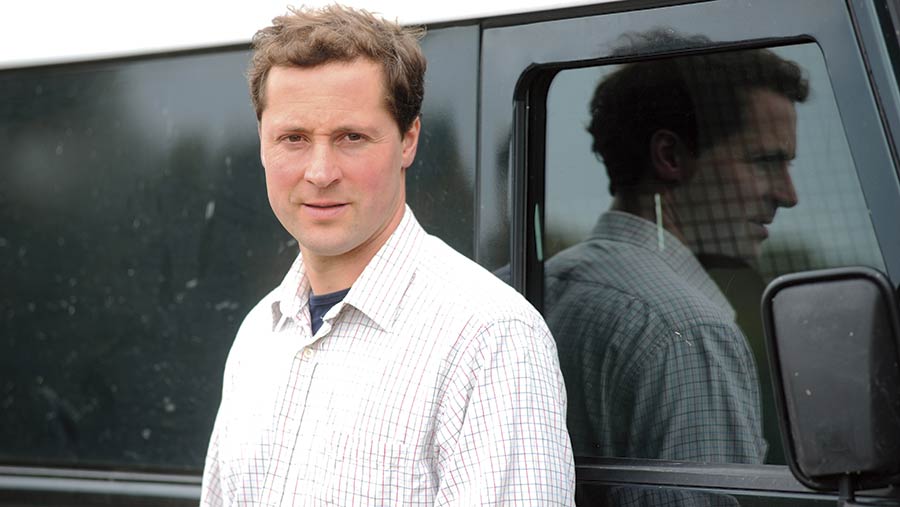Farmer Focus: Blackgrass levels in wheat disappoint
 © Hugh Nutt
© Hugh Nutt What a difference from a month ago, when we were in “drought mode”.
Just-in-time rainfall revived stressed crops and restored hope for a reasonable harvest, although the welcome wetter weather now seems reluctant to stop.
Wheat T3s have all been applied now and crops look clean, although I wonder if growth regulators have worked properly in the dry weather, as crops seem a little taller than usual.
Oilseed rape crops look even and thick. Forage maize has got off to a fantastic start, with near-perfect growing conditions since emergence with no soil erosion issues.
See also: Read more from our Arable Farmer Focus writers
I have to admit to some disappointment at the levels of blackgrass now showing in some wheat crops.
Perhaps I have been complacent in thinking our mixed farm rotation – including maize, ryegrass and fallow options – makes us more immune to infestation, but regrettably early drilled wheat blocks in particular are contaminated across all soil types.
Autumn drilling dates are going to have to slip back further to improve stale seed-bed control, with the inevitable consequence of a delayed harvest.
There is also a possibility we are spreading infection around by applying farmyard manure. As a precaution we will now leave muck heaps in storage longer to kill viable seeds and will also try to avoid baling straw from contaminated fields in the first place.
The only consolation is that fields identified last autumn for “special measures” responded well and look good.
Tree planting deficit
I read recently that UK tree planting is at its lowest level since records began. In fact, rather shamefully, three full-time employees would have been sufficient to cover all the nation’s plantings in 2016, despite a government pledge in 2015 to plant 11m trees by 2020.
This is unacceptable, especially given losses from new diseases. However, it is difficult finding the resources to look after the green if you are in the red. And with farming incomes under pressure, tree planting is being deferred.
Hopefully any future changes to environmental subsidies can include measures to help buck this trend, which would also be popular with the public.
David Butler farms just south of Marlborough in Wiltshire in partnership with his parents. He also runs a contracting company and farms about 870ha of combinable crops alongside a herd of 280 dairy cows.

